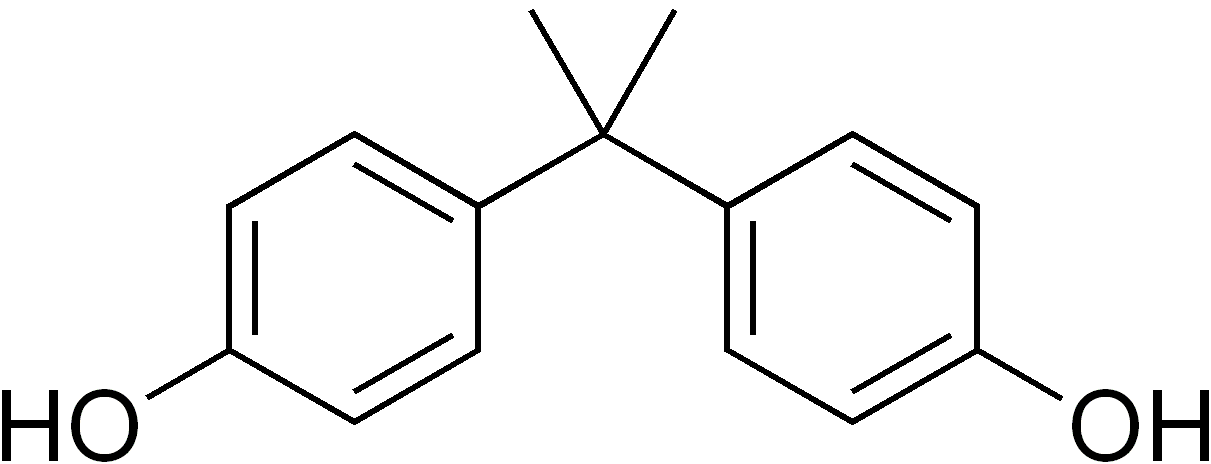This post is based on a short email conversation between me and my sister. She was asking about dioxin and plastic bottles. While I haven’t heard anything (yet?) about a connection with those two, there is a potential concern between plastic bottles and Bishenol A, or BPA. So let’s look at that!
 There are more studies now about BPA leeching out of plastics when the plastics are heated, and possibly leading to health complications, including breast and prostate cancer, as well as infertility. So the theory comments on things like heating foods in plastic containers in the microwave; pouring hot or boiling coffee, tea, or other drinks into plastic travel mugs; letting water bottles sit in hot cars during the summer; etc. In theory, the BPA may leech out of the plastic into the beverage you drink. One of my good friends bought me a special stainless steel water bottle since I drink water all day long at work and I had been asking her about this topic as well :)
There are more studies now about BPA leeching out of plastics when the plastics are heated, and possibly leading to health complications, including breast and prostate cancer, as well as infertility. So the theory comments on things like heating foods in plastic containers in the microwave; pouring hot or boiling coffee, tea, or other drinks into plastic travel mugs; letting water bottles sit in hot cars during the summer; etc. In theory, the BPA may leech out of the plastic into the beverage you drink. One of my good friends bought me a special stainless steel water bottle since I drink water all day long at work and I had been asking her about this topic as well :)Water in the car may not even be the beginning of the issue - I was listening to a lecture the other day, and one of the doctors on said that just in transporting bottled water to stores, the trucks aren't kept at any specific temps, so often the bottles get overly hot in transport and have leeched chemicals by the time they get to the store. He didn't say what the best option was for water.
 The Environmental Working Group (a group I'm finding I like, more and more!) say: "Avoid eating or drinking from polycarbonate plastics – used in such products as hard plastic baby bottles, 5 gallon water cooler bottles, hard plastic water bottles, plastic silverware, and Lexan products. You can check for the type of plastic on the bottom of the bottle – polycarbonate bottles may be labeled with recycling number 7 ("Other" type of plastic) or may contain the letters "PC" below the recycling symbol. Bisphenol A may leach out of these types of bottles into your beverage or food. Alternatives include bottles and other materials made from glass, stainless steel, or polypropylene bottles labeled number 5 on the bottom (translucent, not transparent)."
The Environmental Working Group (a group I'm finding I like, more and more!) say: "Avoid eating or drinking from polycarbonate plastics – used in such products as hard plastic baby bottles, 5 gallon water cooler bottles, hard plastic water bottles, plastic silverware, and Lexan products. You can check for the type of plastic on the bottom of the bottle – polycarbonate bottles may be labeled with recycling number 7 ("Other" type of plastic) or may contain the letters "PC" below the recycling symbol. Bisphenol A may leach out of these types of bottles into your beverage or food. Alternatives include bottles and other materials made from glass, stainless steel, or polypropylene bottles labeled number 5 on the bottom (translucent, not transparent)."
HealthCastle.com lists a few more numbers: "check the number shown on the bottom of each container, and throw out any marked with a 3, 6, or 7. Safe plastics (made without BPA) are the ones numbered 2, 4, and 5. To be sure, check the packaging for terms like "without BPA" or "BPA-free," or contact the manufacturer if in doubt. And when you are reheating food in the microwave, use glass containers instead of plastic ones."
(My plastic water bottle has the number 1 on it - of course, the one number not listed. I should just go back to my stainless steel bottl!) But that's some info for ya regarding bottles! :)
EWG also did a study that found “For 1 in 10 cans of all food tested, and 1 in 3 cans of infant formula, a single serving contained enough BPA to expose a woman or infant to BPA levels more than 200 times the government's traditional safe level of exposure for industrial chemicals.”
Dave and I do filtered water at home, and we don't own a microwave. But I admit that I drink tap water all day at work. I tend to drink a good 2 liters a day, and it's just been easier to refill my bottle at the fountain rather than heft 2 liters of filtered water on the 15 minute walk from my car to my office every day. (Hmmm, I wonder if I could get a tiny individual cup filter...) We try to limit canned foods; and if I ever had a baby, I would 100% try to breastfeed! (There’s nothing like the real thing, baby!)
More from EWG: "The insidious nature of environmental pollutants is a deeply disturbing fact of modern life.” There are pollutants everywhere, and it seems sometimes the best you can do is just do your best! Unfortunately, we don’t have the option to live in Eden right now, so just try to make every day your own little beautiful Eden wherever you are with whatever you have!
xoxox
~Katie
No comments:
Post a Comment